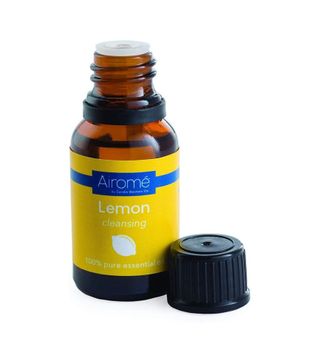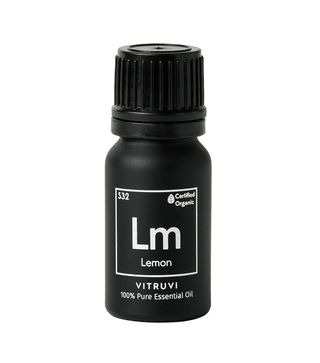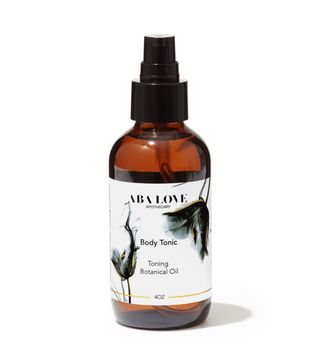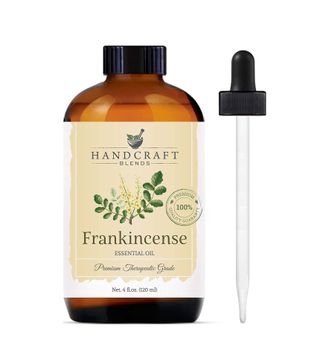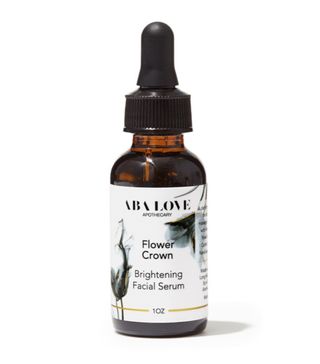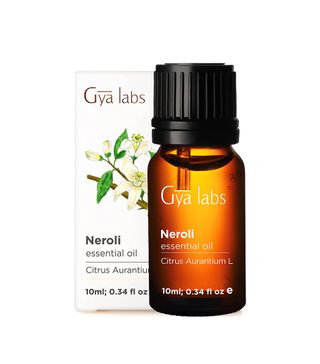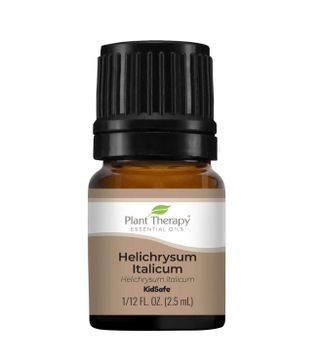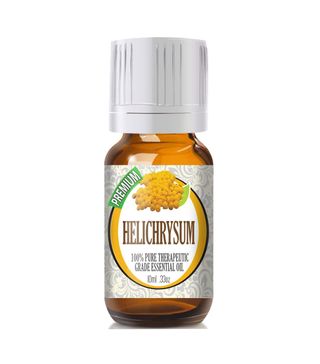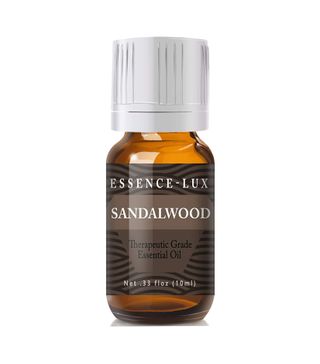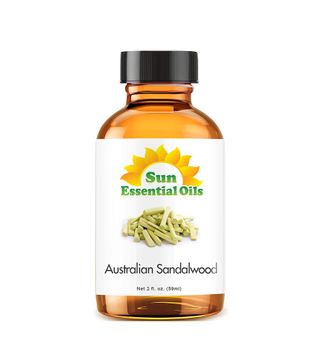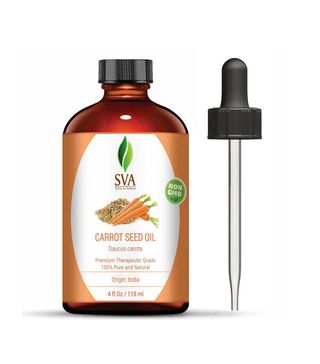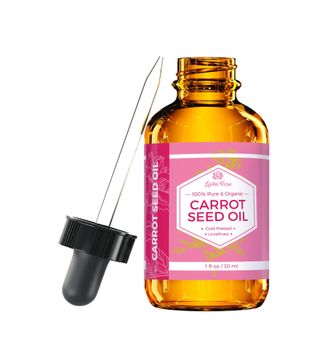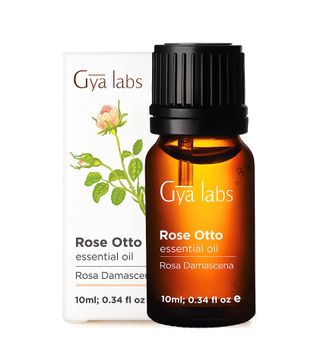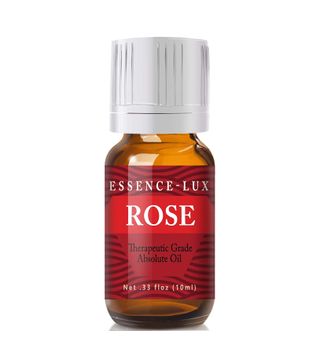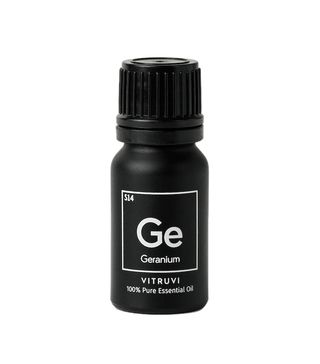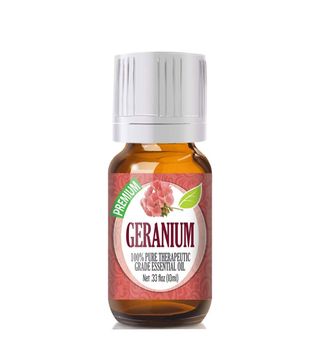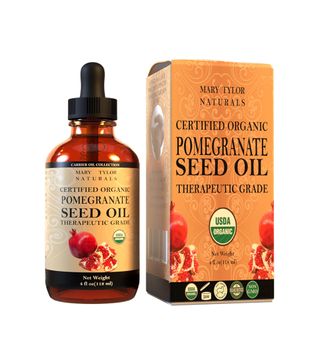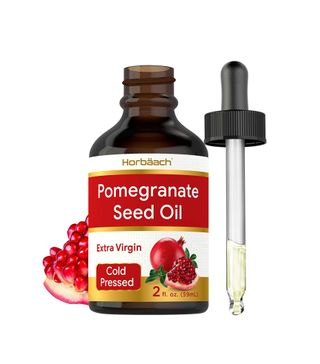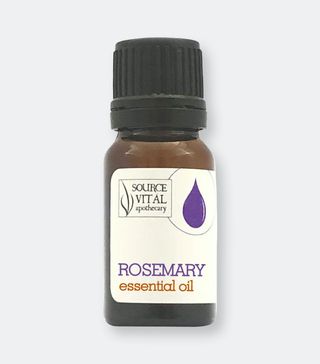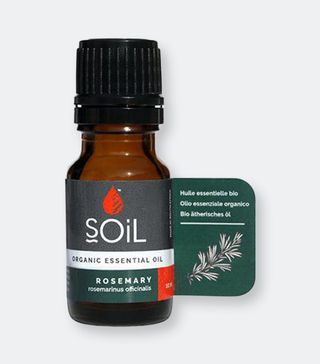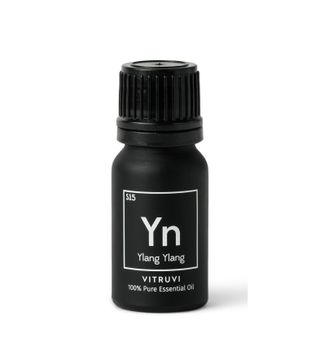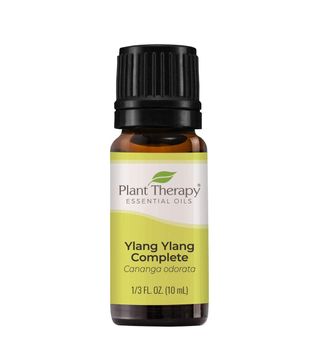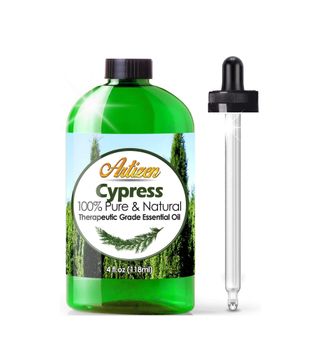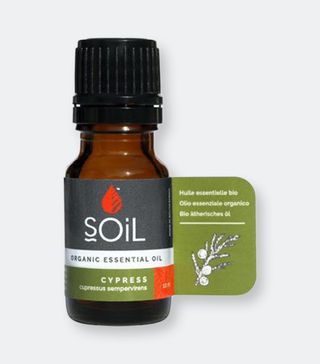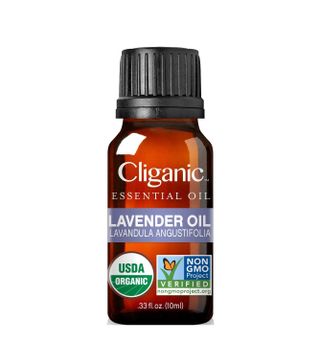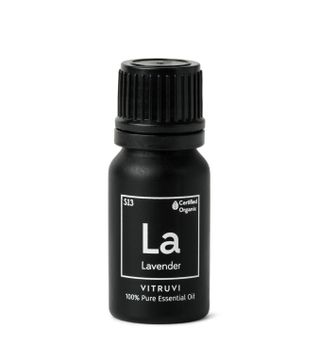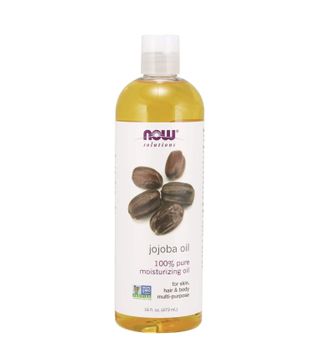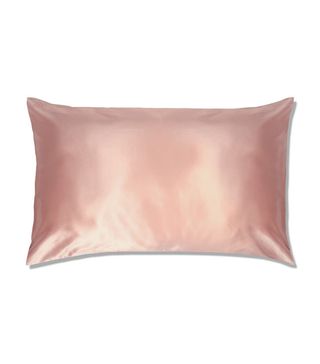These 13 Essential Oils Are the Key to More Youthful-Looking Skin
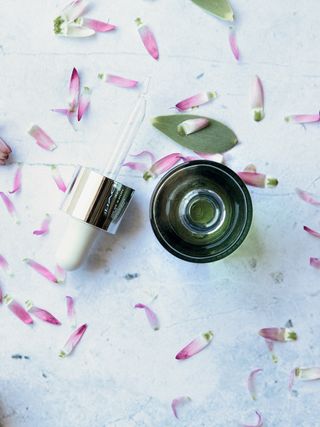
Essential oils can be powerful wellness and beauty ingredients. The aromatherapy properties of essential oils can help you de-stress, get better sleep, focus, feel energized, and more. And when it comes to beauty, they have some pretty impressive benefits when it comes to anti-inflammatory, antibacterial, and soothing properties. Many essential oils are so great for combating dryness, skin texture, elasticity changes, which are some skincare issues you might run into when you get older.
"Essential oils are alternative medicine therapies that may be useful to an individual's anti-aging skin regimen. You can think of essential oils as an additional tool to add to a pre-existing beauty regimen, however, it is an addition that must be used cautiously," explains Vanessa Coppola, FNP-BC, a board-certified nurse practitioner, aesthetic specialist, and owner of Bare Aesthetic Medical Spa. "It is important to note that essential oils are derived from fruit, vegetable, or plant-based sources and retain many of the properties of their original host. In simple terms, what this means is if you have had a reaction to the host source—for example, lemons—then it would not be a good idea to use an essential oil derived from the lemon, as it would contain many of the same properties and could cause a sensitivity or allergic reaction in an individual."
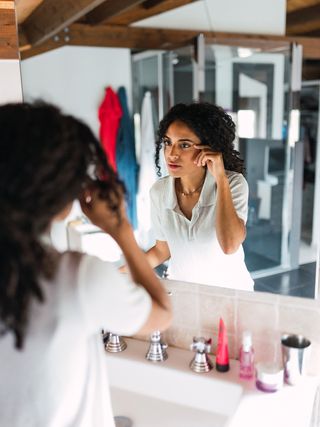
If you do want to use essential oils in your skincare routine, master esthetician and co-owner of Atelier Beauté, Aneta Zuraw, says that you should keep in mind that each essential oil can have a different chemistry and different therapeutic actions and strength. It's important to mix the essential oil with a carrier oil because they can be very strong and irritating on the skin when applied directly.
"A safer bet is to choose a pre-formulated facial cream or lotion that already contains an essential oil," Coppola says, "however, if you're going to conduct a do-it-yourself approach, a reasonable rule of thumb is to apply about five to six drops of essential oil to approximately a 1/2 ounce of the carrier vehicle—either a serum oil made for the face such as jojoba, argan, or almond oil, a facial cream, or a facial lotion. It is essential (no pun intended) to conduct a spot test first and observe for a minimum of 72 hours to detect for any reactions or sensitivities when incorporating essential oils into your regimen." If it's well-tolerated, some of the skincare benefits include fighting free radical damage, promoting collagen formation, enhancing the clarity and texture of your complexion, increasing hydrating, and providing antioxidant benefits.
Take a look at some of the essential oils with anti-aging benefits below.
The Best Anti-Aging Essential Oils
1. Lemon
"Lemon oil is a rich source of vitamin C, which is known to improve skin tone with its brightening properties and improve collagen production. In addition, it also has anti-microbial properties," says board-certified internist Sunitha Posina, MD.
2. Frankincense
Aba Gyepi-Garbrah, certified aromatherapist and founder of Aba Love Apothecary, says frankincense can help with dryness, skin firming, skin-cell rejuvenation and repair, and wound healing.
3. Neroli
Neroli is the fragrant flower that grows on the bitter orange tree. Coppola says its extract is known for its antibacterial, anti-inflammatory, and anti-fungal properties. "It may be useful in acne-prone skin, and when used sparingly, may help to reduce the occurrence of chest acne caused by fungal overgrowth," she adds.
4. Helichrysum
Gyepi-Garbrah explains that helichrysum has skin regenerating and scar healing benefits. It's ideal for sensitive, scarred, and severely compromised skin.
5. Sandalwood
"Sandalwood has anti-urticarial properties (anti-itch) and is a wonderful soothing essential oil for dry, sensitive skin," Coppola says. "It also has anti-inflammatory properties, which may be useful for skin conditions such as mild eczema and rosacea. Sandalwood helps to attract water to the skin and keep it there by maintaining a healthy moisture balance—this translates to smoother plumper, healthier-looking skin. It is gentle and soothing and may also help to promote cellular renewal as well."
6. Carrot Seed
"Carrot seeds have some antioxidant effects. The antioxidants could help prevent aging by stopping the breakdown of healthy cells in the skin," explains master esthetician and co-owner of Atelier Beauté, Darya Rzaca.
7. Rose
"Rose oil could be particularly helpful for skin cell renewal, which can keep the skin looking youthful for longer," Rzaca says. "Rose essential oil heals scars, moisturizes, fights inflammation relieving stress, and promotes circulation."
8. Geranium
Posina says it is known to be a natural cicatrisant (skin healing), and can promote wound healing and aid in the process of skin cell regeneration.
9. Pomegranate
"Pomegranate has been shown to contain a powerful antioxidant profile that can help protect against free radical damage to the skin and possibly prevent premature photoaging (aka premature wrinkles and collagen loss)," Coppola says.
10. Rosemary
Rosemary has antibacterial properties and can stimulate your skin by increasing circulation and improve inflammation, Posina says. And Gyepi-Garbrah that it's also detoxifying and can help tighten the skin.
11. Ylang-ylang
"Ylang-ylang is an essential oil often used in perfumes, however, according to a 2015 study, ylang-ylang has shown some antioxidant effects that could help aid skin renewal," Rzaca explains. "Specifically, ylang-ylang was shown to help rebuild the skin's proteins and fats while reducing the number of free radicals."
12. Cypress
Cypress oil can detoxify, provide water retention relief, and smooth the skin, according to Gyepi-Garbrah.
13. Lavender
"Lavender is known for its antibacterial benefits and known to help with acne. It is also non-comedogenic, which means it does not clog pores. It can help in people with dry skin or those with eczema," Posina says.
Do's and Don'ts of Using Essential Oils
We already learned that essential oils can be highly concentrated and potent, which might irritate the skin, so before you start using them in your routine, the experts shared with us a few do's and don'ts to keep in mind:
Don't Use Directly on the Skin: Not to sound like a broken record, but you should always use a carrier oil with an essential oil.
Do Check the Labels: Posina recommends checking the quality of the oil and introducing based on the properties of the oil.
Don't Use If Very Old: If you had an oil for a long time, you probably want to get a new one. Also, you shouldn't use it if it's not stored properly. Zuraw recommends storing your oils in a cool, dry place away from the sun.
Don't Apply Without Doing a Patch Test: Make sure to test a small area of the skin to check for any allergies before you apply it to your whole body.
Do Be Cautious If You Have Acne-Prone Skin: "Additionally, as oils provide an occlusive barrier to the skin, they are best tolerated in the cooler winter months and should be used cautiously and sparingly in individuals that are prone to breakouts," Coppola says. "Used modestly, essential oil-formulated skin compounds may be beneficial to individuals suffering from breakouts in very small quantities, like with geranium essential oils."
Do Be Careful in the Sun: Coppola says that any essential oil with a citric or fruit base, (like lemon or grapefruit) should be used cautiously when sun exposure levels are high, like at the beach. That's because these essential oils can cause increased photosensitivity to UVA and UVB rays. Posina says you might want to avoid using them during the day overall.
Do Apply With Caution: You want to be careful to not get any of it in your eyes.
Do Apply Based on Your Skin's Needs: How often you use an essential oil will depend on your skin type. "Essential oils are very powerful, so start low and go slow. Excessive use of essential oils may increase the risk for adverse reactions. In most cases, one to two drops are adequate, and using more may waste product," Zuraw says. And if you don't see results quickly, be patient—Coppola says it typically takes a minimum of 30 days to start to see results, with best results appearing at 12 weeks.
Do Change Your Pillow Cover: Posina explains that they can absorb the oil and also collect dirt.
Do Not Use on Babies or Young Children: You should also be careful if you're pregnant, as some oils can't be used topically if you're expecting, so check with your doctor first.
Next: These 9 Essential Oils Are the Secret to Longer, Healthier Hair
Disclaimer
This article is provided for informational purposes only and is not intended to be used in the place of advice of your physician or other medical professionals. You should always consult with your doctor or healthcare provider first with any health-related questions.
Sarah is lifestyle writer and editor with over 10 years of experience covering health and wellness, interior design, food, beauty, and tech. Born and raised in Los Angeles, she attended New York University and lived in New York for 12 years before returning to L.A. in 2019.
In addition to her work on THE/THIRTY and Who What Wear, she held editor roles at Apartment Therapy, Real Simple, House Beautiful, Elle Decor, and The Bump (sister site of The Knot).
She has a passion for health and wellness, but she especially loves writing about mental health. Her self-care routine consists of five things: a good workout, “me” time on the regular, an intriguing book/podcast/playlist to unwind after a long day, naps, and decorating her home.
-
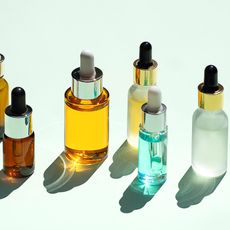 6 Essential Oils That Will Heal Your Painful Sunburns
6 Essential Oils That Will Heal Your Painful SunburnsAll-natural relief ahead.
By Samantha Parsons
-
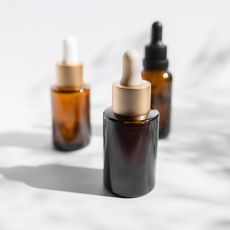 These Essential Oils Will Relieve Your Stress ASAP
These Essential Oils Will Relieve Your Stress ASAPBreathe in. Breathe out.
By Sarah Yang
-
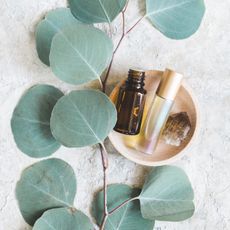 If You're Going to Start Using Essential Oils, This Is the Most Versatile One
If You're Going to Start Using Essential Oils, This Is the Most Versatile OneIt has so many uses.
By Sarah Yang
-
 This Is the Trick to Try the Next Time You Have a Headache
This Is the Trick to Try the Next Time You Have a HeadacheSoothe that tension.
By Sarah Yang
-
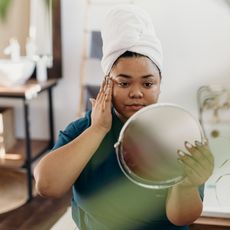 The 8 Essential Oils That Will Give You Flawless Skin
The 8 Essential Oils That Will Give You Flawless SkinSomething for every skin type.
By Caroline Dweck
-
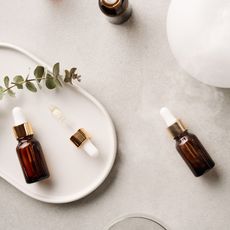 The Best Essential Oils to Stock Up on for Anxiety Relief
The Best Essential Oils to Stock Up on for Anxiety ReliefThese have powerful soothing properties.
By Sarah Yang
-
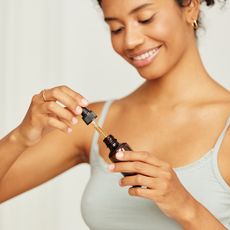 10 Skin-Tightening Essential Oils That Are Like Nature's Botox
10 Skin-Tightening Essential Oils That Are Like Nature's BotoxGive your skin a boost.
By Caroline Dweck
-
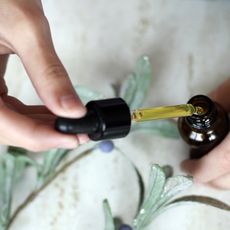 6 Essential Oils That Can Help You Deal With Nausea
6 Essential Oils That Can Help You Deal With NauseaPlus, how to use them.
By Sarah Yang
